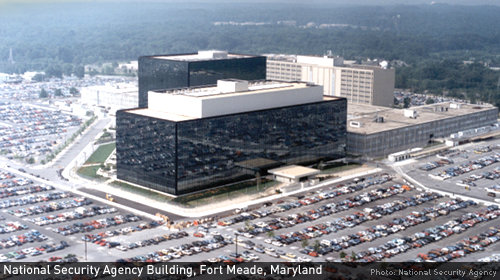ACLU to Court: Government Spying Invades Privacy of Each and Every American


Last night, we filed the opening brief in our lawsuit challenging the NSA’s ongoing collection of the call records of virtually everyone in the United States, including the ACLU’s. We’re asking the court for a preliminary injunction ordering the government to stop collecting our data and to bar any use of the ACLU call records it already has collected.
The NSA’s program is illegal because it is not authorized by Section 215 of the Patriot Act as the government claims, because it invades every American’s Fourth Amendment right to privacy, and because it forces ordinary Americans to pause every time they pick up the phone to consider whether they want the NSA to know whom they’re calling – infringing on the First Amendment rights to freedom of speech and association.
Under this unprecedented surveillance program, the NSA has built an enormous database filled with information about every American’s associations and affiliations. Here’s how we put it in the brief:
Each time a resident of the United States makes a phone call, the NSA records whom she called, when the call was placed, and how long the conversation lasted. The NSA keeps track of when she called the doctor, and which doctor she called; which family members she called, and which she didn’t; which pastor she called, and for how long she spoke to him. It keeps track of whether, how often, and precisely when she called the abortion clinic, the support group for alcoholics, the psychiatrist, the ex-girlfriend, the criminal-defense lawyer, the fortune teller, the suicide hotline, the child-services agency, and the shelter for victims of domestic violence. The NSA keeps track of the same information for each of her contacts, and for each of their contacts. The data collected under the program supplies the NSA with a rich profile of every citizen as well as a comprehensive record of citizens’ associations with one another.
In its own filing last night, the government asked the court overseeing the case to dismiss it, in part because “persons making telephone calls, even from their own homes, lack a reasonable expectation of privacy in the numbers they call.” To make this point, the government relies on a Supreme Court case that is nearly 35 years old – from a time when the government did not have the technological capacity to store our personal information indefinitely or mine it for revealing details.
Along with our brief, we submitted the declaration of Professor Edward Felten – a professor of computer science at Princeton University – who thoroughly debunks the government’s claim that so-called “telephony metadata” is innocuous and of no privacy concern:
Although it is difficult to summarize the sensitive information that telephony metadata about a single person can reveal, suffice it to say that it can expose an extraordinary amount about our habits and our associations. Calling patterns can reveal when we are awake and asleep; our religion, if a person regularly makes no calls on the Sabbath, or makes a large number of calls on Christmas Day; our work habits and our social aptitude; the number of friends we have; and even our civil and political affiliations. . . .
[When] aggregated, telephony metadata allows the government to construct social graphs and to study their evolution and communications patterns over days, weeks, months, or even years. Metadata analysis can reveal the rise and fall of intimate relationships, the diagnosis of a life-threatening disease, the telltale signs of a corporate merger or acquisition, the identity of a prospective government whistleblower, the social dynamics of a group of associates, or even the name of an anonymous litigant.
We also filed sworn declarations from ACLU staff supporting the motion. One is from the ACLU’s legal director, Steven Shapiro, testifying to the importance of confidential communications with our clients. Another is from Michael German, a former FBI agent and now ACLU senior policy counsel – he was a whistleblower at the FBI and describes the need for confidentiality when whistleblowers communicate with organizations like the ACLU.
In its filing, the government also argued that the ACLU does not have “standing” to challenge the NSA’s program because, although we know the government is collecting our phone records, we cannot prove anyone has looked at them. That is wrong on many levels. For one, the government’s logic turns the Fourth Amendment on its head – the protections of the Constitution are concerned with the government’s initial intrusion upon privacy, not only with the later uses to which the government puts the information it has collected. That’s why it is unconstitutional for the government, without a warrant, to seize your journal even if it never reads it; to record your phone call even if it never listens to it; or to videotape your bedroom activities even if it never presses play. (Check out this very convincing analogy involving President Obama and Michelle’s diary.)
The government has for years used the pretense of “foreign intelligence surveillance” to gather vast amounts of information about every American – innocent or not, with or without suspicion. The theory that it can collect our private information now in case it needs it later violates the most basic of American rights: to be left alone by our government absent suspicion of wrongdoing.
Learn more about government surveillance and other civil liberty issues: Sign up for breaking news alerts, follow us on Twitter, and like us on Facebook.



